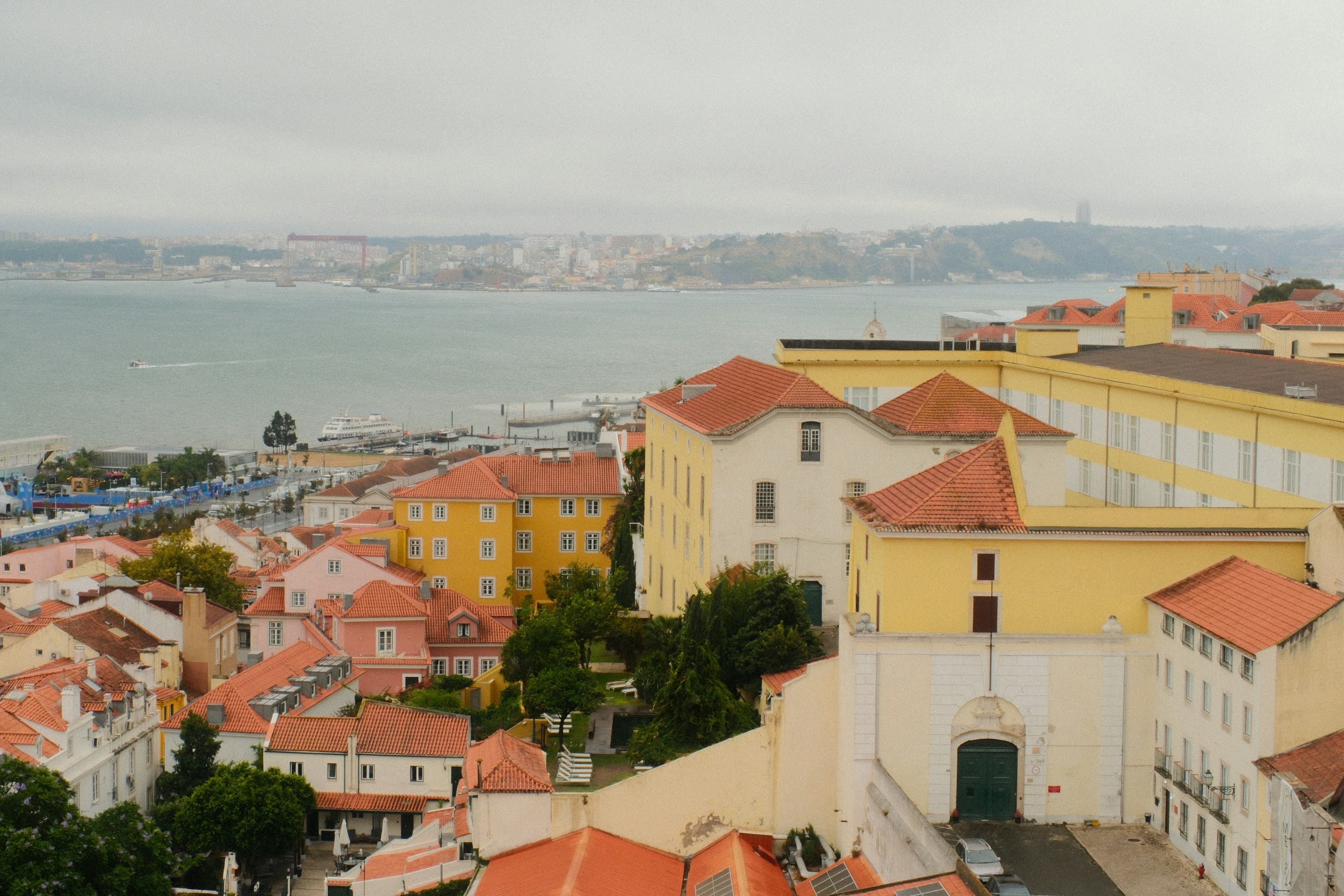
Buy or Rent in Portugal: Which Housing Choice?
A complete overview to clarify your housing decision in Portugal, balancing flexibility, investment, and lifestyle.
Portugal continues to attract: mild climate, vibrant culture, sunny gastronomy, and a relaxed pace of life. But when the time comes to settle or invest, one big question arises: should you buy or rent? The choice of housing, often emotional, becomes here a truly strategic decision. This guide helps you understand the differences, weigh the advantages, and choose the solution that best suits your project.
A Market in Full Evolution
For several years, the Portuguese real estate market has been growing significantly, especially in urban and coastal areas. Lisbon, Porto, and the Algarve show high prices, while regions like the Centre or the inland North remain more affordable.
Renting, on the other hand, has tightened with the arrival of expatriates, remote workers, and foreign investors. Rents are rising, especially in tourist cities, but demand remains very strong. In this context, the decision between buying and renting mainly depends on your horizon: are you here for a few months, a few years, or for good?
Renting: Freedom Above All
Renting in Portugal is often the best way to discover the country without constraints. It allows you to test a neighborhood, a city, or even a lifestyle before committing.
The advantages are clear: flexibility, simplicity, mobility. You can change region easily, adjust your home to your needs, and avoid the heavy procedures that come with buying. It is also a great option for those working remotely or who want to live according to the seasons, between sea and mountains.
But renting also has its limits: you do not build any property equity, you may face rent increases, and you are subject to certain restrictions imposed by the landlord. Some contracts require a security deposit, and the conditions may vary from city to city.
In short, renting means choosing freedom and adaptability, sometimes at the expense of stability.
Buying: Stability and Investment
Buying in Portugal means putting down roots. It is also a way to turn a desire for sunshine into a true life project. Interest rates remain competitive, the legal framework is relatively stable, and foreign demand supports property value.
Buying allows you to build wealth, arrange your space as you wish, and secure your housing in the long term. It is a particularly interesting option for families, retirees, or entrepreneurs who plan to settle permanently.
However, buying implies a stronger commitment: you must have a down payment, plan for additional costs (notary, taxes, maintenance), and accept reduced mobility. It is a coherent choice if you see yourself in Portugal for several years and if your professional or personal situation is stable.

Buy or Rent: How to Decide?
The decision often depends on three essential criteria:
1. Duration.
If you plan to stay for less than five years, renting is generally the more rational option. Beyond that, buying becomes more profitable and secure.
2. Financial Situation.
Buying requires initial capital: down payment, notary fees, insurance. Renting, on the other hand, requires little liquidity at first but represents a recurring cost with no return on investment.
3. Lifestyle.
Are you more sedentary or exploratory? Do you want to root yourself in a local community or keep the possibility to move? The ideal home depends on your rhythm, not only on your wallet.
A Look at Portuguese Regions
- Lisbon: dynamic, cosmopolitan, expensive. Purchase prices are the highest, but property value follows the same trend. Renting can be wise to start.
- Porto: more affordable but highly sought after, especially by young professionals. Buying remains a good opportunity, provided you anticipate competition.
- The Algarve: the region of sun and expatriates. Buying often rhymes with rental investment or second home.
- The Centre and Inland North: quieter, cheaper, ideal for a rural or ecological lifestyle. Renting allows you to test before buying.
- The Islands (Madeira, Azores): natural paradises but smaller markets; it is better to rent first before making a permanent purchase.
Essential Procedures
To rent, you will need:
- A Portuguese tax identification number (NIF).
- A written contract, usually for one year and renewable.
- A deposit equivalent to one or two months’ rent.
To buy:
- A Portuguese bank account.
- The NIF.
- A preliminary contract followed by the notarial deed.
- Additional costs (between 6% and 10% of the property price).
Foreigners can buy without restrictions, but certain administrative steps (translations, taxes, residence) require professional assistance.
Mistakes to Avoid
Many newcomers make the same mistakes:
- Buying too quickly without knowing the region.
- Renting without carefully reading the contract.
- Forgetting hidden costs (maintenance, taxes, condominium fees).
- Falling for the view rather than the location.
The key is to take your time: explore, compare, talk to locals. Portugal offers very different lifestyles between a Lisbon apartment and a house in Braga.
What Strategy to Adopt?
If you come to discover the country, start by renting: it gives you the freedom to adjust your plan.
If you have found your favorite place and want to settle there, buying becomes a beautiful life step.
And if you are between two worlds — a bit nomadic, a bit settled — it is possible to combine both: rent your main home and invest in a small property to rent elsewhere.
Conclusion
Buying or renting in Portugal is above all a matter of personal rhythm. Renting means flexibility and discovery. Buying means commitment and projection. Between the two, there is an infinite range of possibilities.
Portugal, with its blend of modernity and authenticity, offers you the luxury to choose according to your own pace. What matters most is turning this choice into a pleasure, not an obligation.
Share this article
Suggested articles

Cultural Differences Between France and Portugal in Everyday Life
France and Portugal share a long common history built on respect and friendship. But living between the two countries means discovering how much small habits, ways of speaking, or daily routines differ. These cultural nuances, sometimes amusing, sometimes surprising, reveal a lot about the character of both peoples. Between lifestyle, communication, cuisine, family, or work, this is a journey into the heart of the French-Portuguese differences that make this relationship so rich.

Truly Integrating into Portugal: Understanding the Local Mentality
There are countries where you arrive, unpack your bags, learn three words of the language, and think, “I’m integrated.” Portugal isn’t that kind of country. Here, integration isn’t about ticking boxes. It’s a slow conquest, a story of listening, of observation, of small gestures, and above all, of humility.

The Cost of Living in Portugal in 2025: Between Reality and Myth
For years, Portugal had that image of a small sunny paradise, where life cost almost nothing, where you could live like a king on a modest salary, and where retirees from Northern Europe came to settle down to “enjoy life.”

Mistakes to avoid when moving to Portugal
It’s a common mistake: imagining that moving to Portugal means leaving all modern life’s problems behind. The country may be welcoming, stable and warm, but it’s still a European nation with its own challenges.

Living in Portugal without speaking Portuguese myth or reality
Portugal is one of those rare countries where you can arrive without feeling completely lost. Young people speak English fluently, waiters switch easily between several languages, and even in public offices there’s almost always someone ready to help in French or Spanish. It’s not a myth: the Portuguese have a real talent for languages and, above all, they never make you feel bad for not speaking theirs.

The Most Popular Neighborhoods for Expats in Lisbon and Porto
Moving to Portugal has become, in recent years, a true social phenomenon. Between quality of life, mild climate, and warm hospitality, more and more expats are choosing Lisbon or Porto as their new home. But beyond clichés and postcards, each neighborhood has its own personality, atmosphere, and secrets. Let’s explore together the places most beloved by expats, where Portuguese authenticity meets modern comfort and a cosmopolitan spirit.


